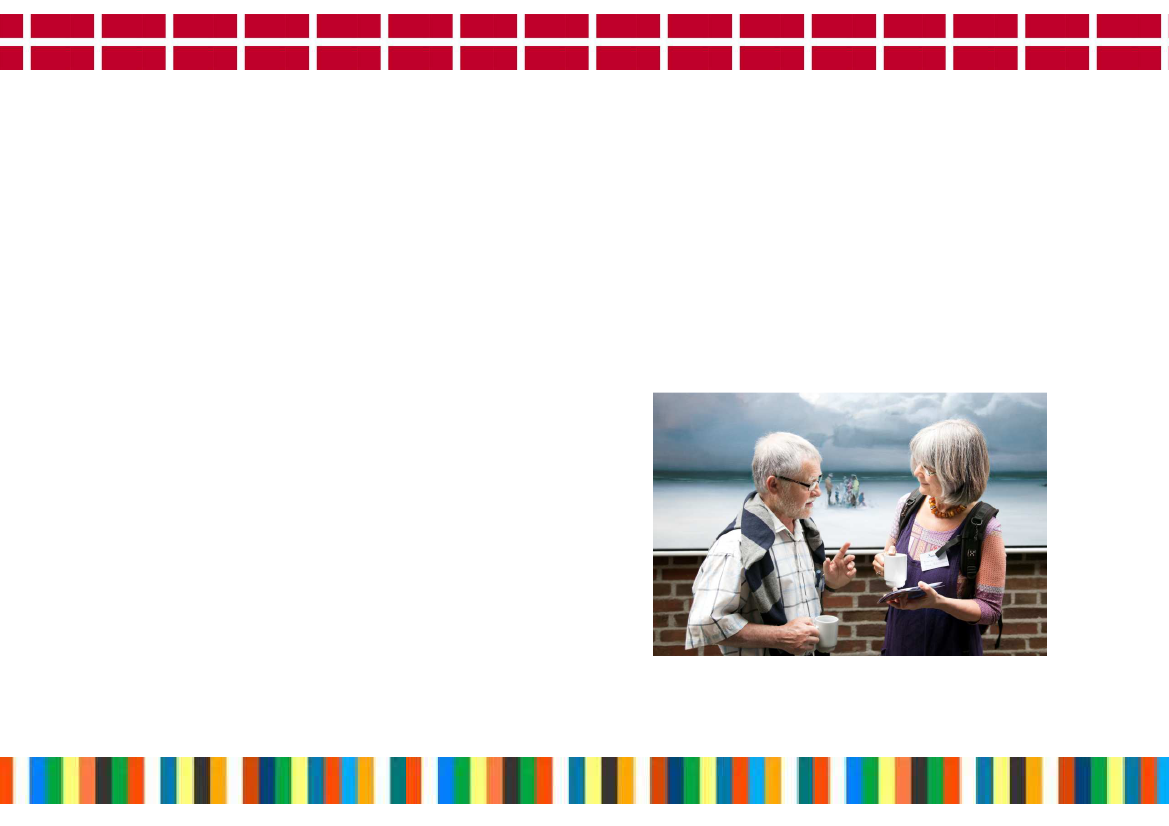
PROACTIVE AND CONSTRUCTIVE
Senior Citizens’ Councils are proactive and invite citizens to debate events and make
suggestions directly to the politicians. This helps increase citizens' engagement in
local decision-making on elderly policy by ensuring that dialogue and cooperation
between the elderly and the local council are promoted, maintained and expanded.
The SCC members are critical of any deterioration of conditions for senior citizens,
but also view every issue as a whole and respect that it may be necessary for
politicians to prioritise and make tough choices. SCCs are not interest groups working
unilaterally to promote the immediate interests of their immediate constituents;
rather the decisions which the SCCs influence can reach many years into the future
and are thus also important for future generations of elderly people. Likewise, the
SCCs are aware of latent conflicts between the generations and seek to avoid this
through dialogue with youth organisations.
REAL IMPACT
A national survey among SCCs chairmen, civil servants and local politicians show that
all three parties generally agree that hearing statements from SCCs are taken
seriously by city councils and that SCCs have a real impact on local politicians'
decisions. Most importantly, the SCCs have proven their worth, merit, and
legitimacy. Inspired by the work and success of the SCCs, the Danish Parliament has
subsequently passed legislation on Councils of the Disabled and Integration Councils
in municipalities, respectively.
MORE INFORMATION
To learn more about statutory, elected Senior Citizens’ Councils in Denmark visit the
website of the National Association of Senior Citizens Councils or contact the
secretariat:
STATUTORY
ELECTED
SENIOR CITIZENS’ COUNCILS
danske-aeldreraad.dk/english/
tel. +45 38770160
Denmark
is recognised as a country that contributes to the development and
dissemination of
participatory democracy.
The statutory, elected Senior Citizens'
Councils in local government are one
successful and well-integrated example
of this.